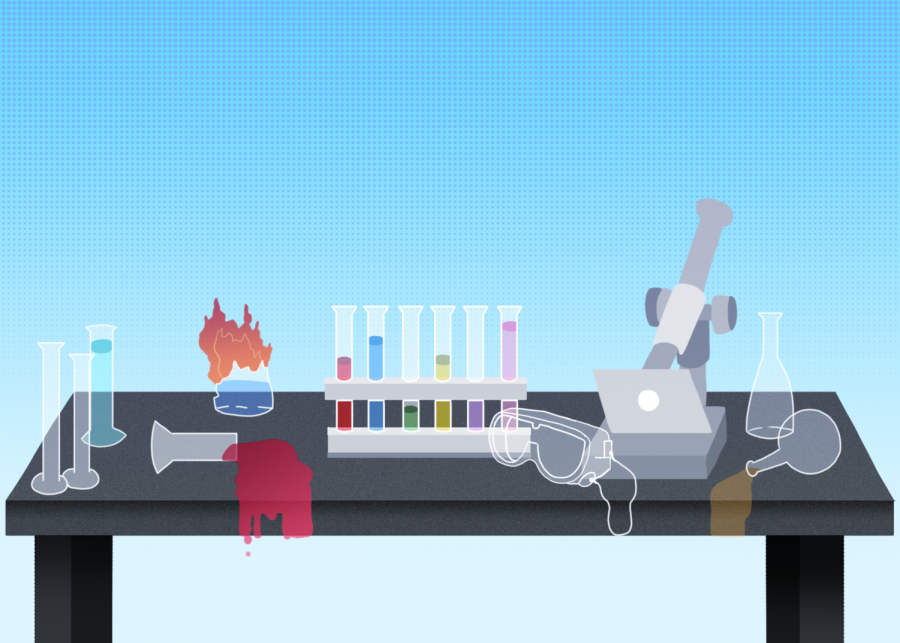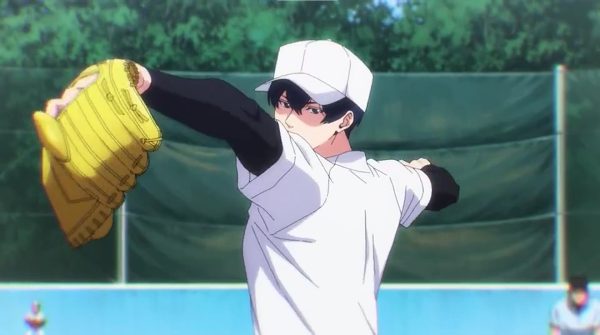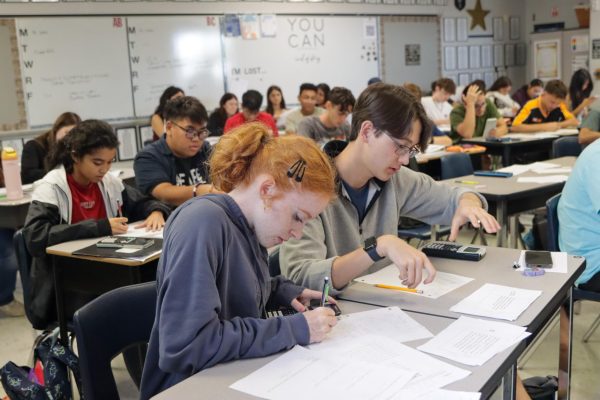Projected to fail
photo by Bethany Barker
While intended to be a fun and exciting assignment, projects like science labs can end up disastrous. Students who struggle with more hands-on assignments should be able to have a say in their learning.
It is the boss battle at the end of a long quest. Your earbuds that have caught on something and abruptly ripped out. The printer that quits on you at your most desperate moment. Walking to fifth period, you feel an impending sense of doom. All day, you have been hearing complaints about the assignment to end all assignments: the board game project in English. This project will take weeks, requiring you to be creative and original, as well as be able to provide the art tools needed to make your game visually pleasing,
While this new task is annoying, tedious and difficult, the teacher excitedly describes this as “a chance for you to be creative.” Except, you are not a creative person. After all the required art classes with ugly paintings and the school musicals you never received a part in, it has become clear that school projects are not your forte.
Too often, assignments such as the board game project are handed out, meant to be a fun alternative to the boring note-taking and lecture curriculum. Yet, it proves to be a nuisance and a threat to the grades of many, who often excel at the straightforward, no-frills type of homework. It may not be the most entertaining, but it gets the job done. School is primarily for learning; it is not to spend valuable time coloring worksheets or planning out skits.
Classes like AP Human Geography and AP Environmental Science are touted as “strict, no-nonsense” courses that treat you like a college student. Yet, they continue to assign ridiculous one-pagers and posters, which can take hours depending on skill level. Students fret over perfecting their handwriting, choosing the color of their pen, or the placement of all the required drawings. This defeats the entire purpose of the assignment; by prioritizing these insignificant details, actual learning is pushed aside.
Of course, everyone has different learning styles, and many may learn from one-pagers, or creating a board game. We must find an acceptable alternative, that works for both teachers and students. Teachers work hard to help everyone, and it would be unfair to brush off their ideas. After all, they must fit the needs of every student in their class.
However, this is why students should be able to have more of a say in the assignments they complete. By involving the students ideas and input on the types of work they do, it will be more effective at teaching students than just assigning one project for everybody. Teachers would also be able to connect more with students and gauge what type of areas need more class time, how their students learn, etc.
In cases like science labs, some may enjoy getting hands-on experience, while others feel lost. The crowded lab tables, the report that is constantly being passed around between group members, and the uncooperative equipment are distracting. Yet, there are always alternative assignments for those who are absent, students not wearing the right shoes, or kids who are allergic to certain ingredients. So why not assign this to other students?
One can argue that this attracts students away from the original project at hand, but teachers can offer extra credit to those who participate in the labs, the skits, and the drawings. Teachers can also add to these straightforward assignments; perhaps they can include a mandatory documentary to watch that explains the dissection of a frog, or require a certain number of note pages to be written about Columbus’ arrival in America, rather than create a song about it.
In times like these, students are studying from home or going to school and sitting behind partitions. There are less group projects, and students are left alone to navigate vague instructions. Many will not have access to the resources needed for these projects. Even on SCVS and FLVS, online science labs require materials like iodine, not exactly a common chemical found in every household. With simulated labs and thorough worksheets, students will still be engaged in class.
This is not an argument for free points or for an easy way out; it is an argument for equitable learning. It is also not an attack on teachers. It is simply a different direction that students can take to reach the same goal: learning. We are all trying our best to defeat that evil wizard, continue listening to our favorite tunes, and just print that paper due in five minutes.
Your donation will support the student journalists of Hagerty High School. We are an ad-free publication, and your contribution helps us publish six issues of the BluePrint and cover our annual website hosting costs. Thank you so much!







